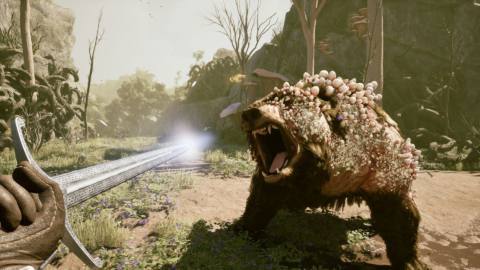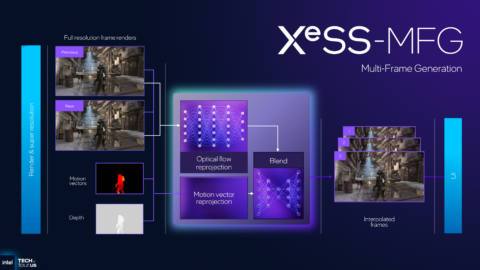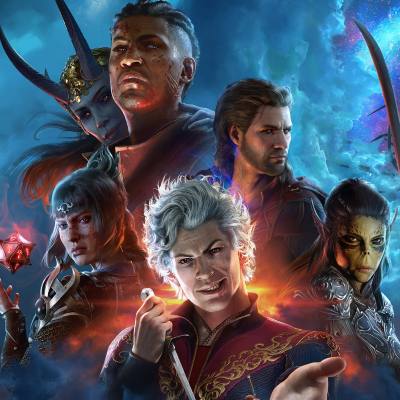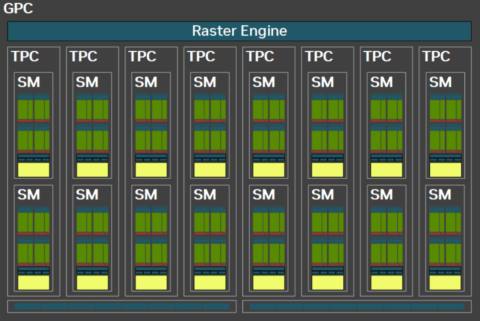11 of the reveals from last weekend's Xbox Games Showcase came from studios Microsoft acquired within the past six years:
- Avowed (Obsidian, 2018)
- South of Midnight (Compulsion Games, 2018)
- State of Decay 3 (Undead Labs, 2018)
- Fable (Playground Games, 2018)
- Indiana Jones and the Great Circle (Machine Games, 2021)
- Fallout 76: Skyline Valley (Bethesda Game Studios, 2021)
- Starfield: Shattered Space (Bethesda Game Studios, 2021)
- Doom: The Dark Ages (id Software, 2021)
- Call of Duty: Black Ops 6 (Treyarch, 2023)
- Diablo 4: Vessel of Hatred (Blizzard, 2023)
- World of Warcraft: The War Within (Blizzard, 2023)
Add in games from Microsoft's other studios—Gears of War: E-Day, Perfect Dark—and even without the third-party stuff like Assassin's Creed Shadows, it was a meaty show. It feels like we've truly arrived at the place Microsoft has been heading since it started using the “Xbox” name on Windows: Xbox is no longer a console, it's a game development conglomerate.
Hop back to E3 2017, and among the big Xbox conference games were Anthem (womp womp), Assassin's Creed Origins, Metro Exodus, Forza Motorsport 7, Sea of Thieves, Ori And The Will Of The Wisps, Middle-Earth: Shadow of War, and State of Decay 2. Some of those games were published by Microsoft, but only Sea of Thieves was developed by a studio that Microsoft owned at the time (it bought Rare in the early 2000s).
There was a lot more console talk, though. Around six minutes at the start of that 2017 conference was spent promoting the new Xbox One X with terms like “16 nanometer technology” and “7 billion transistors.” That was three-and-a-half years after the original Xbox One launched. We're now three-and-a-half years removed from the Xbox Series X/S launch, and the only hardware news at this year's showcase was the brief mention of new Series X/S configurations at the end.
Microsoft has said that its next Xbox is going to be a powerhouse, and so I'm sure there'll be more transistor talk when it's time for that reveal, but the joke that consoles are just PCs for your TV is only getting more true. A more powerful Xbox won't change the fact that console exclusivity is on the way out (Nintendo excepted) and the multi-decade war fought by tech megacorps and their armies of enthusiast fans is effectively over. (You can still witness the occasional Xbox vs PlayStation squabble, but today's battles are really just reenactments.)
What's next for post-console war Microsoft?
So, Microsoft “won” summer showcase season, but what does that mean when Marcus Fenix and Kratos are both on Steam anyway? And why did Microsoft buy all these studios in the first place if its priority is no longer to sell Xboxes with exclusives?
One answer is that all these games will come to Game Pass, although I can't say that I know any PC gamers who aren't going to cling to their Steam libraries like life rafts. PC gamers were once resistant to Steam, too, so maybe Microsoft's right to go all-in on the subscription model, but it's a gambit.
If these developer acquisitions are just a means to grow Game Pass, then I worry about what happens to them if Game Pass doesn't grow as fast as Microsoft's shareholders like. The recent layoffs and studio closures certainly don't project security and stability.

Meanwhile, Microsoft's relationship with PC gamers has been spotty. We've alternated between feeling abandoned and neglected—particularly after it shunned us for its new Xbox baby in the early 2000s—or like it wants to exert too much control. Windows 8 just about had Gabe Newell in open rebellion.
Now PC gaming is the hottest thing around, and we've swung well into the latter position: glad that Microsoft has taken an interest, but worried that it might be too interested. We wanted Dad to pay more attention to us, not become the boss of our hobby.
We have definitely been getting along better in recent years: Windows 11 is fine (I wish its search function didn't suck), there are no more Xbox console exclusives, and Microsoft has mostly given up on making us use the Microsoft Store. But it's natural to feel nervous about anyone owning not just the OS most of us use, but also many of our favorite PC developers.
There are two emerging counterweights that I'm heartened by: The growing dominance of “weird little games”, and the recent success of the Steam Deck, which shows that what it means to be a PC gamer can still evolve.
As for Microsoft, the best case outcome to me would be that it really sees selling great games as an end in itself. I'm obviously skeptical—you don't have to buy Call of Duty to do that—but I at least don't get the sense that it's been pushing Obsidian, inXile, or its other recently-acquired studios to make aggressive gacha games. That Doom: The Dark Ages trailer at this year's showcase was sick, and I'm interested in Fable and Avowed and several of the other games we saw. There's a nervous energy around all of them—and the studios that are making them—but the future still feels open.






